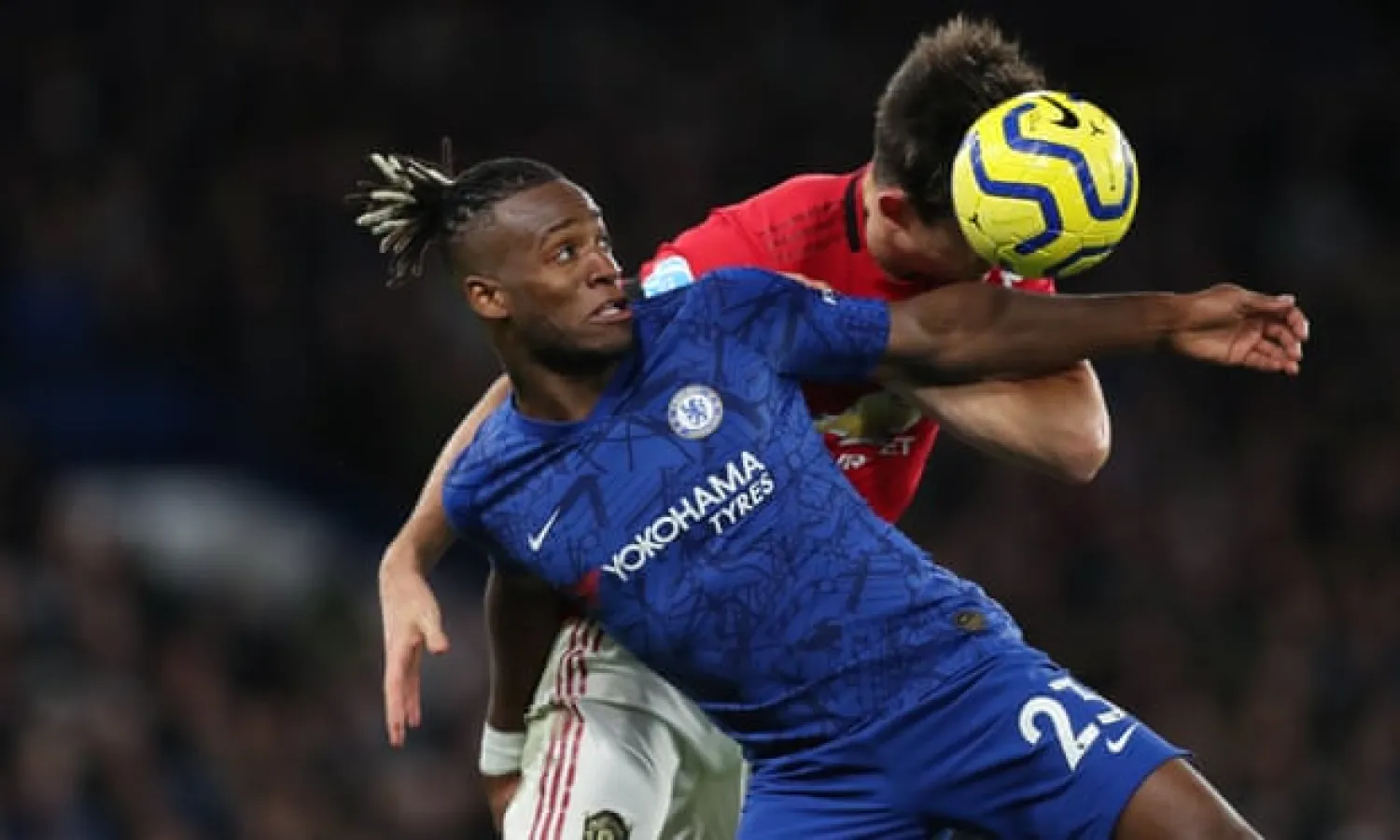Just briefly, for no more than a couple of seconds, there was a murmur of dissent directed at Frank Lampard by the home crowd. It came midway through the second half as Olivier Giroud was brought on for Michy Batshuayi. Up went the ironic roar: why had the French World Cup winner not been brought on sooner? But then by that stage Chelsea fans were greeting most things, particularly decisions by the referee Anthony Taylor that went their way, with ironic cheers. If a VAR call had favoured them, or Batshuayi had scored a goal, the roof would have come off.
Still, the moment seemed telling, in part because the question is so obvious – Giroud may be 33, and he may have a history of missing big chances in the biggest games, but why has he been limited to just 304 minutes of football this season when those favoured by Lampard have been so erratic in front of goal of late? – and in part because it suggested Chelsea’s patience with Lampard may not be infinite.
The defeat by Manchester United on Monday night was, in fairness, not a time to blame Lampard. This was a game of which the outcome felt fanciful in the extreme: dramatically speaking, it simply did not convince. It began with Chelsea, Batshuayi in particular, missing chances, which is reasonable enough. The Belgian has had 15 shots this season and scored with one of them, the distillation of a wider problem with finishing at Chelsea; in terms of goals scored, only Watford are underperforming their expected goals by a wider margin.
There then followed a trio of refereeing/VAR decisions that seemed almost designed to disprove the assumption that it would be a cold, all-seeing eye that dealt only in facts, weighing players in the balance and passing godlike justice. As it turns out, all gods are essentially human in conception and VAR is no different: this deity has a cruel and capricious sense of humour.
Even before any of VAR’s interventions, there was a non‑intervention as Willian was booked for diving on the edge of the box. It seemed he had been fouled but because the incident took place a fraction outside the box, VAR was powerless to intervene. Six inches closer to goal and the booking would have been overturned and a penalty awarded. As it was, VAR simply took water and washed its hands before the multitude, saying: “I am innocent of the card to this just person, see you to it.”
Two goals then disallowed, one for a tight but understandable offside, the other for a push by César Azpilicueta that itself seemed the domino effect of a push by Fred – do pushes in the box, like handballs, now matter to a differing degree according to whether they are perpetrated by an attacking or defending player? – were not even the end of it. That Harry Maguire should have scored the decisive second having not been sent off for thrusting his boot into the groin of Batshuayi about three feet in front of Lampard – this was within VAR’s jurisdiction, it just chose on this occasion to spare the England defender, reasoning perhaps that by that stage there were several thousand people in the ground who would willingly have clouted the profligate forward amidships – was a devastating coup de grace.
So there were plenty of mitigating factors. But if a manager is going to lose three times in a season to Ole Gunnar Solskjær, there had better be.
In the league Chelsea have lost five times at home this season and won only four of their past 14 games. That they remain fourth when extrapolating their points per game suggests they are on course for just 60 points this season – a total that would usually lead to a side finishing seventh or eighth – says everything about the splodge of mediocrity at the heart of the Premier League this season. It may be that this ends up being the strongest bottom five in the league’s history, but it will almost certainly be the worst team ever to finish fourth.
For now Lampard’s status as a much-loved former player, allied to a recognition of the difficulties of operating within a transfer ban in the summer when the club’s best player of the last decade was sold, continue to insulate him. But however unfortunate they were on Monday, there must also be an acknowledgement that Chelsea to an extent made themselves vulnerable.
The problems defending set plays have dogged Chelsea all season. Like the problems defending counterattacks, that ultimately is an issue of organisation. Aaron Wan-Bissaka had previously registered one assist all season: the opening goal came from only his ninth accurate cross of 2019-20, and yet he drifted easily past Willian and was given time to measure his delivery. That, and the poor finishing, suggest a lack of that indefinable quality that so often sets the best above the rest: an edge, a confidence, a ruthlessness, a capacity just to get the job done.
At some point the absence of that is going to end up being blamed on the management. There were plenty of mitigating factors on Monday, but soon the excuses are going to run out.
The Guardian Sport









